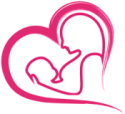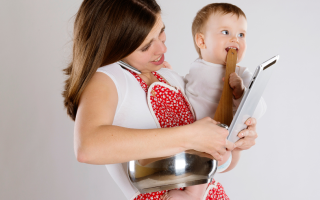As a new parent, the first few weeks of parenting can be both exciting and overwhelming. From learning how to care for a newborn to navigating sleep deprivation, it can be a challenging time. Having the right tools and resources can make a big difference in your ability to care for your new arrival and survive the early weeks of parenting. Here are five tips for surviving the first few weeks of parenting, along with some must-have items to help you get started:
- Accept help: Don’t be afraid to accept help from friends and family. Whether it’s a meal delivery or a few hours of babysitting, accepting help can make a big difference in your ability to care for your new arrival.
- Get some rest: Sleep can be hard to come by during the early weeks of parenting, but it’s important to prioritize rest whenever you can. Try to take naps when your baby is sleeping, and consider having someone else take care of the baby for a few hours so you can catch up on sleep.
- Take breaks: Caring for a newborn can be exhausting, so it’s important to take breaks when you can. Consider enlisting the help of your partner, a family member, or a babysitter to give you a break for a few hours.
- Ask for support: If you’re feeling overwhelmed, don’t be afraid to ask for support. Talk to your partner, a friend, or a healthcare professional about your feelings and concerns.
- Be patient: Parenting is a learning process, and it’s normal to make mistakes along the way. Remember to be patient with yourself and your baby, and don’t be afraid to ask for help when you need it.
In addition to these general tips for surviving the early weeks of parenting, there are also specific items that can make the transition a little easier. Here are 10 must-have items for new moms and their babies:
- Diapers: You’ll need a supply of diapers to keep your baby clean and dry. Consider getting a mix of disposable and cloth diapers to see what works best for you and your baby.
- Baby clothes: Babies grow quickly, so it’s a good idea to have a variety of clothes in different sizes. Be sure to have plenty of onesies, sleepers, and other essentials.
- Baby wipes: Baby wipes are essential for cleaning up messes and spills, as well as for diaper changes. Look for wipes that are gentle on your baby’s skin.
- Baby carrier: A baby carrier is a handy tool for keeping your baby close and secure while on the go. There are a variety of carriers available, including slings, wraps, and structured carriers.
- Nursing pillow: If you plan to breastfeed, a nursing pillow can help you get comfortable and support your baby during feedings.
- Diaper bag: A diaper bag is a must-have for carrying all of your baby essentials when you’re out and about. Look for a bag with plenty of pockets and compartments to keep everything organized.
- Car seat: A car seat is essential for keeping your baby safe while riding in the car. Be sure to choose a car seat that meets current safety standards and is appropriate for your baby’s age and weight.
- Stroller: A stroller is a useful tool for getting around with your baby. Consider getting a lightweight, compact stroller for easy travel, as well as a full-size stroller for longer walks and adventures.
- Baby monitor: A baby monitor can help you keep an eye on your baby while they’re sleeping or when you’re in another room. Look for a monitor with features like temperature sensing and two-way talk.
- Bottle warmer: If you’re using bottles to feed your baby, a bottle warmer can be a convenient way to heat up formula or expressed milk.
By having these essential items on hand and following the tips above, you’ll be better prepared to care for your new arrival and make the transition to parenthood a little smoother. Remember to also take care of yourself and prioritize self-care during this time. This can involve finding time for activities that bring you joy, such as hobbies or exercise, and seeking support from your partner, friends, or a healthcare professional if you need it.
It’s also important to be aware of postpartum depression and seek help if you are experiencing symptoms such as persistent sadness, loss of interest in activities you normally enjoy, difficulty bonding with your baby, and changes in appetite or sleep patterns. Postpartum depression is a common and treatable condition, and getting support can help you feel better and better able to care for your baby.
Overall, the first few weeks of parenting can be a challenging but rewarding time. By being well-equipped with the necessary tools and resources and seeking support when you need it, you can survive the early weeks of parenting and lay the foundation for a positive and nurturing relationship with your child.




